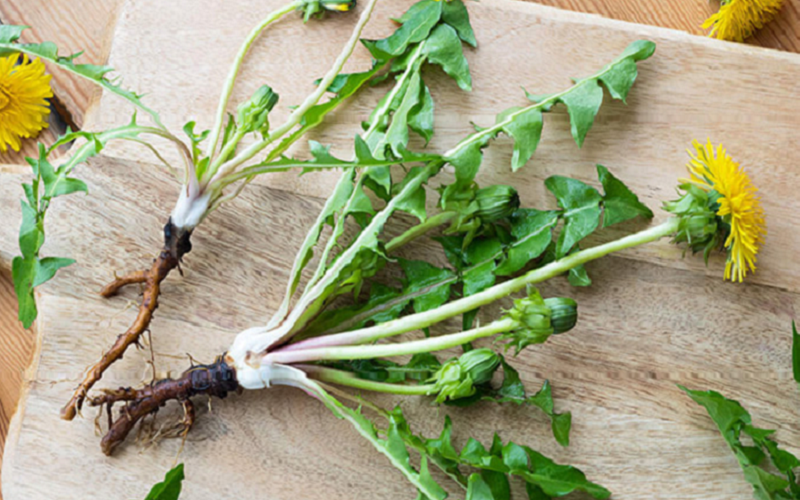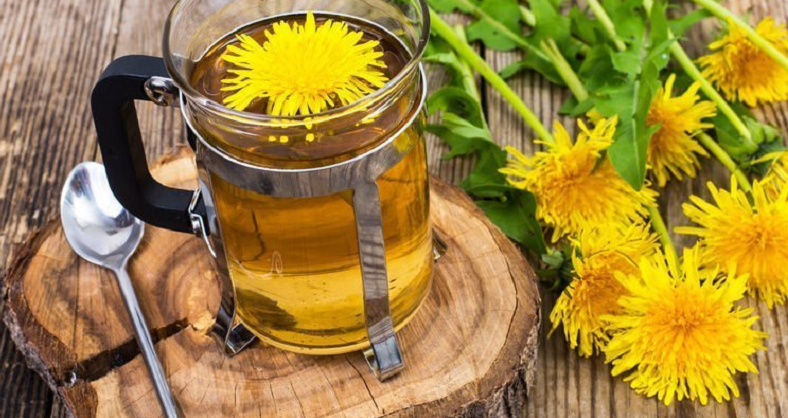
When we think of dandelions, many of us envision a common yard weed, not realizing the hidden treasure beneath its yellow blooms. The humble dandelion root, often overlooked and underappreciated, is a powerhouse of health benefits waiting to be explored. For centuries, various cultures have harnessed the dandelion root’s properties for health and healing. Today, modern research is beginning to uncover what ancient herbalists have always known – that this unassuming plant offers remarkable health benefits. From detoxifying the liver to reducing inflammation, the dandelion root presents a natural, holistic approach to health that aligns with our body’s rhythms and needs.
Contents
Introduction to Dandelion Root
The dandelion, a plant often dismissed as a mere weed, is a botanical treasure trove, especially when it comes to its roots. Dandelion root has been a staple in herbal medicine for centuries, known for its rich nutritional content and health-promoting properties. Its journey from traditional remedies to modern health discussions is a testament to its enduring value in wellness circles.
Historically, dandelion root has been used in various cultures around the world, each recognizing its unique benefits in their own way. From ancient Chinese medicine to Native American healing practices, it has been employed to treat a range of ailments. These historical uses provide a rich context for understanding how dandelion root has been valued over time and across cultures.
Understanding Dandelion Root
Before diving into the health benefits of dandelion root, it’s essential to understand what it is and its significance in the world of natural remedies. This section provides a foundational understanding of dandelion root, from its botanical characteristics to its nutritional profile.
Description and Identification of Dandelion Root
The dandelion, scientifically known as Taraxacum officinale, is a flowering plant familiar to many. Its bright yellow flowers turn into the iconic fluffy seed heads that children love to blow. However, the true gem lies beneath the surface – the dandelion root. Typically, the root is long, dark brown on the outside, and white inside. It’s known for its robust, slightly bitter flavor, which is a hallmark of its therapeutic properties.
Nutritional Profile of Dandelion Root
Dandelion root is not just a medicinal ingredient but also a nutritional powerhouse. It is rich in vitamins A, C, and K, and minerals like iron, potassium, and zinc. The root also contains inulin, a type of soluble fiber that supports gut health, and various antioxidants that help combat oxidative stress [1].
Common Forms of Dandelion Root in Natural Medicine
In natural medicine, dandelion root is used in various forms. The most common are:
- Raw Root: Often added to salads or brewed into tea.
- Dried Root: Used to make dandelion root tea, a popular herbal beverage.
- Powdered Root: Available as a supplement or as an ingredient in herbal blends.
- Liquid Extracts: Concentrated forms of the root, used for their potent effects.
Each form offers unique benefits and ways to be incorporated into a health regimen. Understanding these forms will help you choose the best way to include dandelion root in your daily life.

Health Benefits of Dandelion Root
Having explored what dandelion root is and its various forms, it’s time to get into the heart of this post: the numerous health benefits it offers. Dandelion root is not just a common weed; it’s a potent herbal remedy with a multitude of therapeutic properties.
Detoxifying the Liver
Role in Liver Health
Dandelion root has long been revered for its liver detoxification properties. It’s believed to stimulate the flow of bile, helping the liver detoxify and flush out harmful toxins from the body. This can be particularly beneficial after periods of overindulgence or exposure to pollutants.
Research Findings
Scientific studies have begun to back up these traditional beliefs. Research indicates that compounds in dandelion root can protect the liver from oxidative stress and may even aid in repairing liver damage [2].
Aiding Digestion
Digestive Properties
The bitter compounds in dandelion root are known to stimulate digestive enzymes, aiding in the breakdown and absorption of nutrients. This can lead to improved digestion and relief from issues like bloating and constipation.
Impact on Gut Health
The inulin content in dandelion root acts as a prebiotic, feeding the beneficial bacteria in the gut. A healthy gut flora is crucial for overall digestive health and can impact immunity and even mood.
Anti-Inflammatory Effects
Inflammation and Chronic Diseases
Chronic inflammation is a root cause of many diseases, including some forms of cancer, heart disease, and arthritis. Dandelion root’s anti-inflammatory properties can play a role in preventing and managing these conditions.
Scientific Studies Supporting Anti-Inflammatory Benefits
Studies have found that certain compounds in dandelion root, like polyphenols, have significant anti-inflammatory effects. These findings support its use in reducing inflammation and pain, particularly in conditions like arthritis [3].
Supporting Kidney Function
Diuretic Properties
Dandelion root is a natural diuretic, which means it helps the body eliminate excess fluid. This is beneficial for reducing water retention and supporting kidney function by helping the body get rid of excess salt and water through urine.
Kidney Health and Dandelion Root
By promoting urine production, dandelion root aids in flushing out waste from the kidneys, potentially preventing kidney stones and supporting overall kidney health.
Antioxidant Properties
Fighting Free Radicals
The root is rich in antioxidants like beta-carotene and polyphenols, which help neutralize harmful free radicals. This action can prevent cellular damage, reducing the risk of chronic diseases and aging.
Role in Preventing Cellular Damage
Regular consumption of dandelion root, especially in tea or extract form, can bolster the body’s defense against oxidative stress, thereby playing a role in preventing a range of health issues caused by cellular damage [4].

Dandelion Root in Different Cultures
The dandelion root’s journey through various cultures and traditions is as rich and diverse as its health benefits. Across the globe, different communities have embraced dandelion root, each attributing unique values and uses to this remarkable plant. Exploring these cultural perspectives provides a broader understanding of its global significance.
Traditional Uses of Dandelion Root Around the World
Dandelion root has a storied history in traditional medicine across continents. In Traditional Chinese Medicine, it’s used to cleanse the liver and promote digestion. Native Americans have historically used it to treat kidney disease, skin conditions, and upset stomach. European herbalists have long valued it for its diuretic and blood-purifying properties. Each of these uses reflects a deep understanding of the plant’s medicinal properties that have been passed down through generations [5].
Contemporary Global Perceptions of Dandelion Root
Today, the appreciation for dandelion root spans the globe, transcending cultural boundaries. In the West, it’s often used in detox teas and supplements, recognized for its liver-supporting and anti-inflammatory properties. In Asian countries, dandelion root is still a staple in traditional remedies, often used in teas and soups. The growing interest in natural and holistic health practices has further elevated its status as a superfood and a natural remedy.
Through this global lens, we see how the humble dandelion root, once considered a simple weed, has been revered and utilized in various cultural contexts. Its universal appeal lies in its simplicity and effectiveness, making it a beloved ingredient in the natural medicine cabinet around the world.
References
[1] Dandelion
[2] 11 health benefits of dandelion
[3] New Perspectives on the Effect of Dandelion, Its Food Products and Other Preparations on the Cardiovascular System and Its Diseases
[4] Dandelion Tea: What It Is and 5 Benefits
[5] 11 Dandelion Health Benefits That Might Just Surprise You
